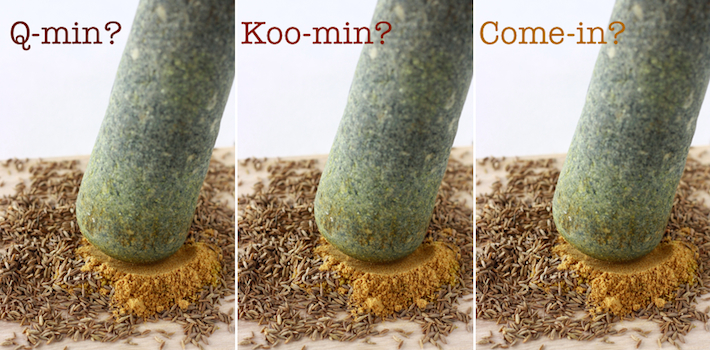You would think after so many generations cooking with the seed, we in the English speaking world could decide on one way to pronounce it.
Q-min? Q-men? Koo-min? Koo-men? Come-in?
Cumin. Or wait, it's also spelled cummin.
The logical step would be to turn to the dictionary. But as definitive as a dictionary is supposed to be, it was surprisingly vague when we tried to determine "What is a spice?" So when we looked up 'cumin' in various British and American dictionaries - Oxford, American Heritage, Longman, Webster - and found multiple suggestions for pronunciation (come-in, koo-min, q-min), it was just as disappointing.
Maybe the origin of the word would shed light on this spicy dilemma? From Oxford Dictionary: Old English cymen, from Latin cuminum, from Greek kuminon, probably of Semitic origin and related to Hebrew kammōn and Arabic kammūn; superseded in Middle English by forms from Old French cumon, comin, also from Latin.
So where does that leave us? Back to where we started.
Is how you pronounce 'cumin' based on which part of the world you are from, or even which part of a country? Not necessarily. Like the pronunciation of 'coupon', cumin knows no geographical boundaries.
Or maybe it does. How do you pronounce cumin?
After voting, please leave a comment below telling us how you pronounce cumin, and which part of the world you are from. And if you are not a native English speaker, what is cumin in your own language?
(We may have to discuss the pronunciation of 'anise' in an upcoming post...)




